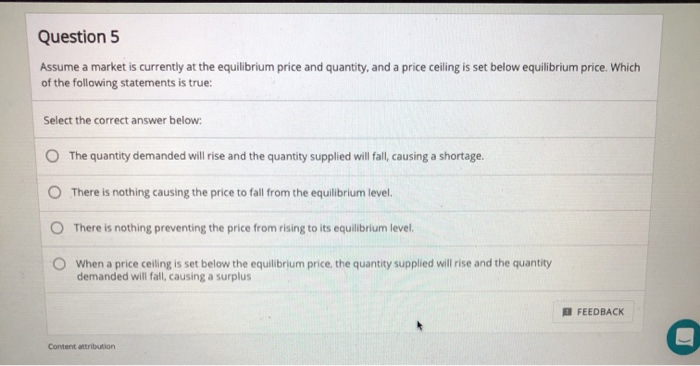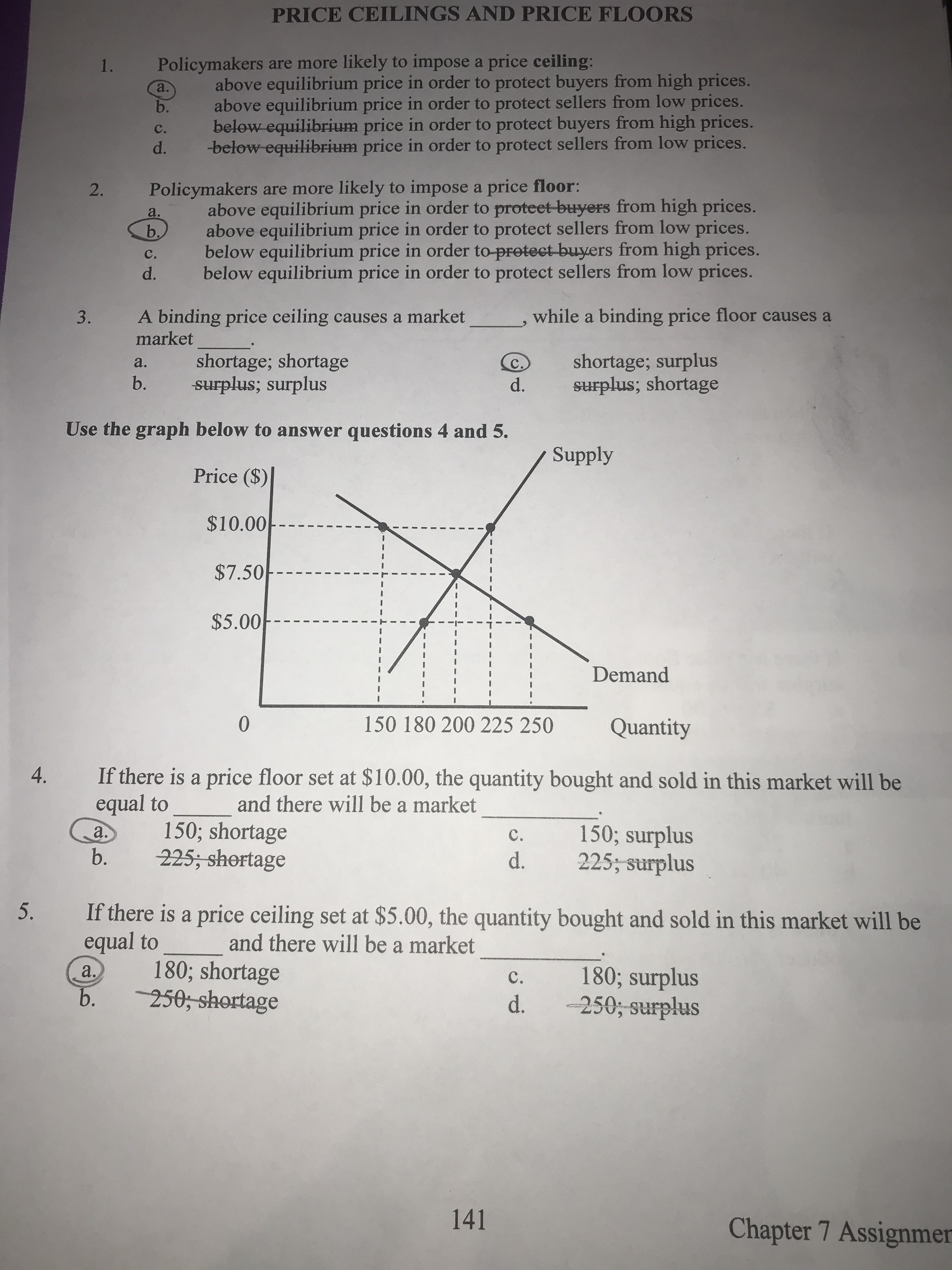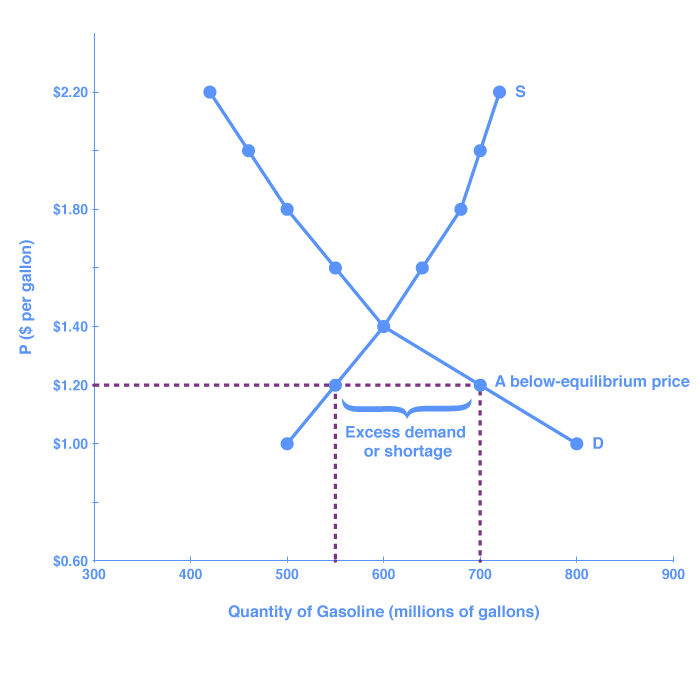When a price ceiling is set below the equilibrium price quantity demanded will exceed quantity supplied and excess demand or shortages will result.
A price floor set below the equilibrium price will result in a surplus true false.
Price ceilings and price floors.
Taxation and dead weight loss.
A price ceiling imposed above the market equilibrium price will result in a shortage of the product.
Minimum wage and price floors.
The effect of government interventions on surplus.
A price ceiling set above the equilibrium price is not binding.
A price floor set below the equilibrium will result in a surplus.
False shortage as the real wage increases the opportunity cost of not working outside the home increases.
Price and quantity controls.
How price controls reallocate surplus.
Price floors prevent a price from falling below a certain level.
Price ceilings prevent a price from rising above a certain level.
Example breaking down tax incidence.
A rent control set below the market equilibrium price will result in a reduction of rental units supplied in the market assuming the supply is consistent with the law of supply.
The equilibrium price commonly called the market price is the price where economic forces such as supply and demand are balanced and in the absence of external.
A price floor must be higher than the equilibrium price in order to be effective.









